Do you know the number of COVID-19 cases reported daily in the United States and Other parts of the world? This page tracks live COVID cases in the United States, with report on each state in the U.S. and other parts of the world. You’ll also discover 20 tips to stay safe and protect your family from the virus.
The coronavirus pandemic has been a big threat to humanity of late. It has destabilized economies and lives.
The coronavirus pandemic has been a big threat to humanity of late. It has destabilized economies and lives.
Since its emergence on U.S. soil on January 13, 2020, the coronavirus has infected millions of people.
Reports show that over a million citizens of the United States of America have lost their lives after contracting the virus.
From the report, it is evident that millions of people have recovered from the infection. And we hope many more will follow suit.
On the other hand, thousands of people are still in critical condition after contracting the coronavirus.
USA Cases Vs. Deaths Vs. Recovery History Chart (Last two Months)
This chart shows U.S. citizens who have recovered and those who have lost their lives to the coronavirus disease in the last few months.
The chart indicates that the virus is still spreading, and several deaths have been recorded in the past few months.
People are still contracting the coronavirus. But the rate at which it is spreading has declined significantly. Furthermore, deaths attributed to the coronavirus have declined.
The virus is still very active, and people are still contracting it and dying. But the cases reported aren’t as severe as several months ago.
The history chart also includes details of people who have recovered from the coronavirus. The chart shows that not much has changed in that category.
USA Reports For Individual States
This coronavirus report for each state shows that steps taken to mitigate the spread of the virus have had a significant impact.
While cases in most states are declining and only a handful of deaths are reported, the situation in some states hasn’t improved.
What is the coronavirus report across the United States of America?
There have been reports of new coronavirus cases across the United States. And though it’s still declining, the pace has slowed down significantly.
The report shows that over a dozen states have witnessed an increase in new coronavirus cases in the last few months. States in the northeastern part of the country have been hit the hardest.
States like New Jersey, New York, and Massachusetts have seen coronavirus cases rise by over 30 percent.
Nevertheless, many states are still witnessing a sustained decline, and cases of infection have remained at their lowest.
Approximately 700 people die from coronavirus daily, the lowest daily average of deaths reported since August 2021. Over 975,000 citizens of the United States of America have died from the global pandemic.
[covid19-state-updates label=”USA States Covid19 Data”]Another World Report With More Details
Report on coronavirus worldwide shows that cases and fatalities have declined significantly in the last few months.
The chart shows that cases and deaths in most parts of the world that used to be coronavirus hotspots have declined massively.
The United States still has the highest number of coronavirus-related deaths and cases than any other country
20 Must-know Tips To Be Safe From The Coronavirus:
Have you checked the cases and death toll of COVID-19 in the United States of America lately? You’ll be shocked to learn about the massive number of people that have lost their lives.
Many dreams have been cut short, and many families have been left devastated. The coronavirus crisis has massive impact on the U.S. Economy and thousands of jobs have been lost since the coronavirus pandemic started.
The U.S. government has put forward measures to curb the spread of the virus. The government has announced a lockdown. But they can’t keep the economy and people locked in their homes for long.
We can take a stand and fight the virus. It requires little effort, but the impact could be massive.
If you’re ready, follow the 20 tips below to be safe from COVID-19. You’ll also be protecting those you love so much.
Are you ready to take action? If yes, read on!
Why Do We All Need To Take These COVID-19 Safety Tips Seriously?
Check this out! Over 80.5 million COVID-19 cases have been reported, and 982,000 people have died. These statistics are frightening but real. The virus has ended the lives of many of our American brothers and sisters.
The coronavirus death rate has declined, but that shouldn’t be a reason for people to be careless. We all need to come together and fight this fight to the finish.
How? We must take precautions and follow health guidelines to avoid contracting or spreading the virus.
So, these tips are important because the life of every American is important. We’re wishing you long life and we hope you’ll remain in good health throughout this crisis.
However, you can avoid contracting the virus by adhering to the tips below. Read on!
Here are tips to keep you safe from COVID-19 or prevent spreading the virus if you have contracted it.
#1: Watch out for COVID-19 signs and symptoms:
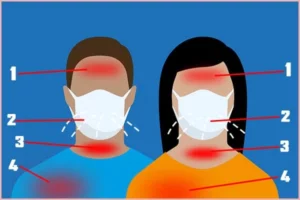
We all wish to be COVID-free. It is a deadly virus and one that can ruin one’s life.
However, understanding the various signs and symptoms of the disease can prove helpful. It can help you decide when to isolate yourself and prevent the spread of the virus to relatives, friends, and colleagues.
People exhibit COVID-19 symptoms in different ways. While some individuals may experience mild or moderate symptoms, others may have severe symptoms that can leave them in critical conditions.
In most cases, people with mild or moderate COVID-19 symptoms recover without hospitalization. Nevertheless, people need to isolate themselves when exhibiting symptoms of the virus.
So, what are the COVID-19 symptoms? Check them out below.
Common COVID-19 Symptoms:
Here are common symptoms most people may exhibit when they have the virus.
- Fever
- Cough
- Tiredness
- Loss of smell or taste
Less Common COVID-19 Symptoms:
Most people may exhibit the following symptoms when they contract the virus, though these are less common.
- Headache
- Sore throat
- Diarrhea
- Pains and aches
- Irritated or red eyes
- A rash on one’s skin
- Discoloration of toes or fingers
Serious COVID-19 Symptoms:
This stage is where it gets serious. If you or a family member is experiencing the following symptoms, get professional help immediately.
- Confusion
- Chest pain
- Shortness of breathe
- Difficulty breathing
- Loss of speech or mobility
So, pay attention to your body. Are you exhibiting any of the signs and symptoms listed here? Or, do you feel unwell?
The coronavirus virus is still very much around. And even though some COVID-19 related signs could mean something different, don’t take chances or make assumptions. Seek medical help as quickly as possible.
A Handy Tip: When someone contracts COVID-19, it usually takes 5 to 6 days from the time of infection for the person to start exhibiting symptoms of the disease. However, some people may show signs of the virus for up to 14 days.
#2: Get Tested ASAP:
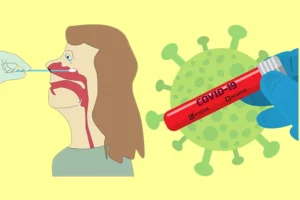
Are you noticing signs of COVID-19 or exhibiting symptoms but trying to convince yourself that something else is responsible? That isn’t a good thing to do.
It is not advisable to allow coronavirus infection to reach a critical stage. Get tested to know if you have the virus or something else.
Testing is free or accessible at a lower price. The United States government has set up a COVID-19 test website called COVIDTest.gov for American households.
As a U.S. citizen, you can order 2 sets of 4 free at-home tests. Yes, both sets of tests are free.
So, there’s no reason you shouldn’t take advantage of this opportunity. Get tested and know your health status. Save your life and others around you.
Check the COVID-19 symptoms above and observe your body for any COVID-related changes. Many Americans are already taking advantage of the free COVID-19 test. Don’t be left out now that the Omicron variant of the virus is surging.
#3: Get vaccinated ASAP:
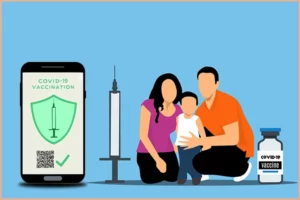
Statistics show that 15% of Americans (adult population) aren’t vaccinated, despite the free access to the vaccine.
Now, why would anyone decide not to get vaccinated? Shockingly, many have cited short-term and unproven long-term side effects, as the reason they won’t take the vaccine.
The short-term side effects include aches, fatigue, fever, and a blood clot (in extremely rare cases). The unproven long-term side effect is infertility.
Now, please listen. Infertility isn’t a long-term side effect related to the coronavirus. Claims about potential long-term COVID-19 side effects are unproven and unreal. They shouldn’t be your reason for ditching coronavirus vaccination.
A Handy Tip: Reports show that 28 of 8.7 million people who took the Johnson & Johnson COVID vaccine had a blood clot. There hasn’t report of blood clots in those who had the Pfizer and Moderna vaccine thus far.
In a nutshell, the COVID-19 vaccine is free and effective. It is necessary to safeguard lives.
The virus is highly deadly. Thus, senior adults, including individuals with certain medical conditions or pregnancy with an increased risk of developing severe illness, should consider taking the vaccine.
But let’s not forget that the vaccine is important for anyone eligible. We should even be grateful we have a vaccine to protect us from the virus.
#4: Practice good hygiene:
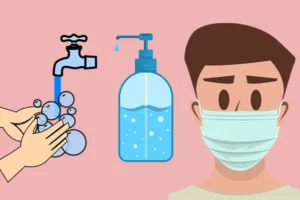
Personal hygiene can increase one’s risk of contracting the virus. So, be careful. When you get back from work, wash your hands with soap and water for at least 20 seconds.
If you can’t find soap and water, use alcohol-based hand sanitizer. It eliminates the virus too.
So, wash your hands before you cook or eat anything. It doesn’t matter if you prepared the food yourself or got it from a restaurant.
And wash your hands when you cough or blow your nose.
#5: Avoid touching mouth and nose with dirty hands:
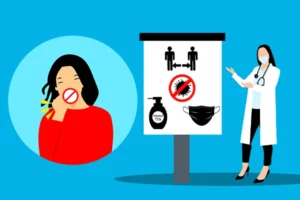
Resist the urge to pick your nose or touch your mouth with dirty hands. You can infect yourself with the virus that way.
Remember to use soap and water or alcohol-based hand sanitizer. We can’t stress this enough.
#6: Always remember to wear your nose mask or use a cloth for face-covering:
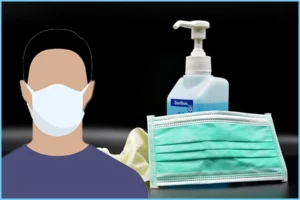
If you’re 2 years or older, make nose mask wearing a top priority.
The W.H.O. recommends that people wear a face mask, regardless of their vaccination status. In other words, it doesn’t matter whether you are fully vaccinated or not, you have to wear a nose mask.
On the other hand, the C.D.C. claims people who are fully vaccinated don’t need to wear nose masks.
Now, whose recommendation should we consider? Is the W.H.O. or C.D.C’s.? Well, both are reputable health agencies, and they want everyone to be in good health.
But if you’re fully vaccinated and you can wear a nose mask, please do so. It would serve as an added protection.
A Handy Tip: Using a nose mask alone isn’t guaranteed to prevent virus infection, though it will limit the spread drastically.
#7: Maintain social distancing:
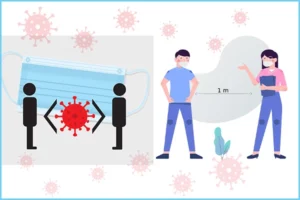
Distancing yourself from people doesn’t imply that you hate them. On the contrary, you love them and want them to be safe.
So, keep a distance of 6 feet from people you don’t live with. And avoid social touching completely. These include kissing, shaking, or hugging.
If you come across someone you know, wave at them or smile. You don’t literarily have to shake hands or hug someone to show you love the person.
#8: Cover your sneezes and coughs:
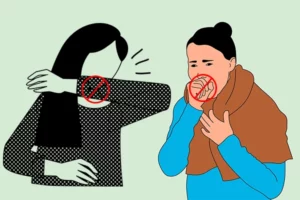
You can cough or even sneeze when wearing a mask. But as soon as you’re done, please change the mask (wear a brand new one) and get your hands washed.
But then, what if you weren’t wearing a nose mask? Well, that shouldn’t be an issue. You can use tissue paper to cover your nose when sneezing or coughing, but discard it once you’re done. You can also use the inside of your elbow.
Now listen carefully. Whether you used tissue paper or the inside of your elbow or wore a nose mask, wash your hands when you finish blowing your nose.
The reason for covering your noise is to ensure the virus doesn’t spread to other people. So, you’re protecting people and ensuring the number of cases doesn’t increase any further.
That way, our health workers can give maximum attention to the few coronavirus cases that come their way.
#9: Disinfect surfaces regularly:
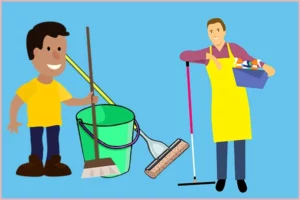
Please, this shouldn’t be a one-off activity. Do it regularly to keep you and the family safe.
What can you use to disinfect? Alcohol-based disinfectants are effective. Using a clean towel, spray the disinfectant onto the surfaces, including objects, and wipe gently.
Below are surfaces and objects you need to clean often:
- Toys
- Countertops
- Furniture
- Door handles
Your remote control, mobile device, laptop (don’t make the towel too damp), and things you use several times daily, need thorough cleaning and disinfecting.
A Handy Tip: Whenever you receive packages, disinfectant them and clean the area you placed the package after taking off the item.
Why is this important? You don’t know what happened to the package along the way or the delivery person’s health status, including other people who have had contact with the package.
Additionally, disinfect the area you placed the package on when you take groceries home.
Furthermore, it is advisable to do general clean-up occasionally. You can use hydrogen peroxide or white vinegar for this purpose.
#10: Avoid sharing personal items:
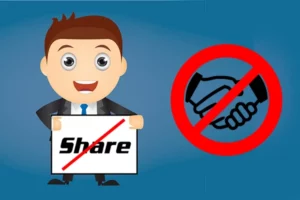
You have a heart of gold and don’t have a problem sharing your personal belongings with people. But here is a passionate appeal to you.
Avoid sharing your belongings with people for now. You can explain why you don’t want to release your belongings to anyone asking for them.
What items should you avoid sharing?
- Makeup
- Cup
- Razor
- Toothbrush
- Spoons
- Mobile device
- Laptop
- Combs
- Clothes, etc.
Avoid sharing these things for now. And teach your children what reusable straws, cups, and plates are. Inform them not to share things with people for now. But don’t forget to explain why you’re asking them to act that way.
#11: Stay away from large gatherings:
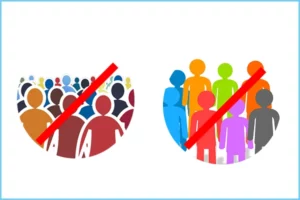
Attending beach parties, religious gatherings, music concerts, or clubbing makes life fun. But before you make such moves, think twice!
Now is the time to abstain from such places, as you could easily expose yourself to the virus. Someone in any of these places could be carrying the virus without you knowing.
So, be safe. Stay away from large gatherings and maintain social distancing.
#12: Don’t drink or eat in public places:
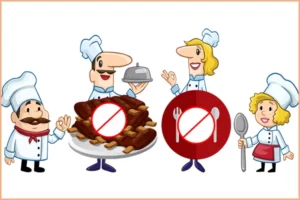
People need to change their lifestyles and routines if they are serious about combating the coronavirus. You have to avoid doing certain things like going to bars, restaurants, eateries, and coffee shops.
Why? Someone with the virus might have coughed or sneezed, leaving the virus airborne before you stepped in.
The virus can also be transmitted via cups, utensils, and foods, and it could even be on the chair or table you’re sitting on.
Instead of visiting public places, you can order cooked foods, drinks, and other items.
Furthermore, avoid cold foods. Reheat your foods before eating.
#13: Wash groceries thoroughly before eating:

The F.D.A. and C.D.C. recommend that you wash fruits and vegetables thoroughly before eating or using them.
Is it advisable to use soap or detergents to wash groceries? No, it is not safe.
Wash your vegetables and fruits under clean running water. And remember to wash your hands for at least 20 seconds before or after handling groceries.
#14: Ensure proper ventilation in rooms:
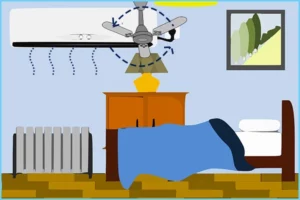
Good ventilation will not only make your body feel cool. It will help reduce your chances of contracting the virus. How?
Proper ventilation with outside air helps lower airborne contaminants, such as viruses, indoors. It will help ensure some or all the viruses are blown outside before landing on surfaces.
By ensuring good ventilation, remember that you’re removing stale air and letting fresh air into the room.
Here is how to ensure there’s proper ventilation in rooms.
How to ensure proper ventilation in homes:
- If the weather allows, leave doors and windows open.
- Use a window air conditioner and open the vent control.
- Use local kitchen or bathroom fans
- Deploy attic or window fans
How to ensure proper ventilation in offices, schools, and commercial buildings:
- Allow outdoor air into the room (if the weather allows). This means leaving the windows and doors open.
- Hold outdoor classes, meals, or other activities. But ensure it is safe and feasible to do so, please.
- Maximize ventilation with heating, ventilation, and cooling (HVAC) setting. You can schedule regular inspections and repairs to enable the appliance to operate smoothly throughout.
- It is crucial to filter and clean the air.
- Deploy portable carbon monoxide (CO2) monitors. You can use it to verify if the air is circulating in the classroom or office, as it should.
- Reduce the number of students or workers in a room to improve ventilation.
#15: Practice healthy habits:
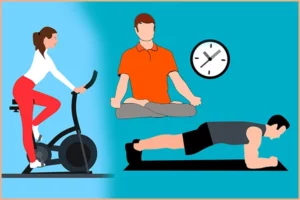
You can keep yourself safe from COVID-19 by practicing healthy habits. Start doing the following things.
- Meditate.
- Exercise regularly.
- Eat balanced diets.
- Start getting plenty of sleep.
- Consume plenty of water. Stay hydrated, please. Remember that water and nutrition are also crucial to COVID-19 recovery. They play a crucial role in the body’s response to the virus.
- Finally, managing your stress is crucial too.
A Handy Tip: Staying hydrated is important. If you cannot consume a large volume of water at once, take small sips every few minutes.
You can also consume various liquids to prevent fatigue, not water alone. And don’t forget to store some liquid by your bedside.
Furthermore, don’t forget to keep your skin moisturized.
#16: Remain home if you feel sick:
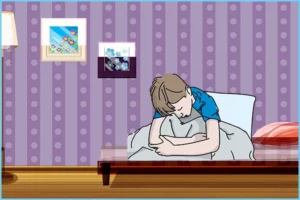
Are you exhibiting symptoms of the virus? Do you feel sick? If yes, remain at home. You can isolate yourself and inform others of your condition via phone.
Going into isolation is important to prevent the spread of the virus to others.
#17: Abide by safety guidelines when traveling:
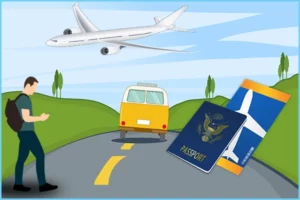
Are you fully vaccinated? If yes, proceed to the airport and make sure you’re wearing your nose mask.
If you’re not vaccinated, there’s no need to rush. Delay your trip a bit and take the vaccine.
If you also feel unwell or tested positive for COVID-19, cancel any plan of travelling.
#18: Pay attention to your mental health:

The coronavirus has been hard on everyone. These include kids, teens, and even adults. Many people have lost their jobs. Children can’t visit relatives, friends or go to school like they used to.
The same goes for teens and adults. We all have to remain indoors week-in, week-out, and the idleness can wreak havoc on one’s mental state.
So, it is important to keep tabs on your mental health. But if you’re mentally strong, please help monitor and take care of other family members’ mental health.
What are the signs someone might be developing mental health issues? Check them out below.
- Persistent sadness
- Lack of energy
- Sleeplessness
- Nervousness
- Irritability
- Substance abuse
- Problematic drinking
All these indicate an individual might be losing it and needs help. It can happen to teens and even children, though they may not want to voice their feelings.
Seek professional help immediately if you’re exhibiting any of these signs or know someone who does.
#19: Keep your kids safe:

Keep tabs on the COVID-19 situation in your kids’ school, and educate your kids on proper hygiene to keep them safe from the virus.
You can find out your child’s school’s COVID-19 guidelines and help remind your kids how to prevent the virus.
Finally, if COVID-19 cases in your kids’ school surge, decide the best for your family.
#20: Prepare for possible lockdown:
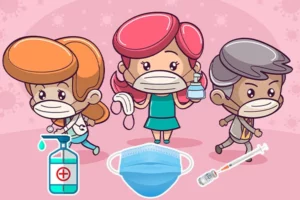
Keeping tabs on the COVID-19 cases can help you prepare for possible restriction of movement.
You have to get enough groceries, medication, and other household items if you have to remain indoors for a long period.
However, it is not necessary to panic-buy now. Let the government announce plans for a possible lockdown to curb the spread of the virus before doing so.
Conclusion
The coronavirus is real! Millions of cases have already been reported, and thousands of people have died.
The good thing is everyone now knows how the virus spreads. And there are steps people can take to be safe from the virus.
We have shared 20 tips to be safe from COVID-19. So, take action. Do the right thing to avoid contracting the virus. Read and apply the tips here!
Be safe out there, and keep your family safe too!

